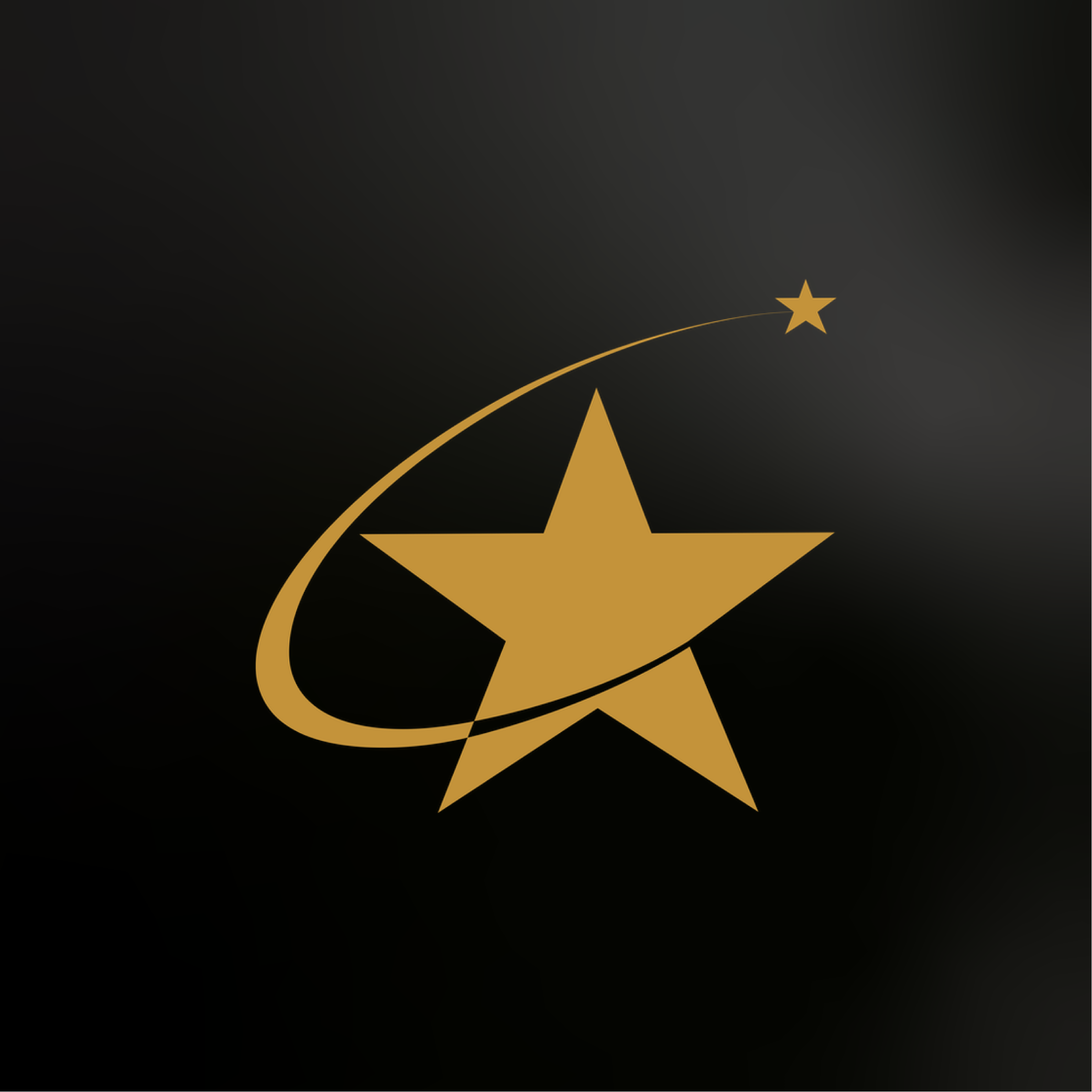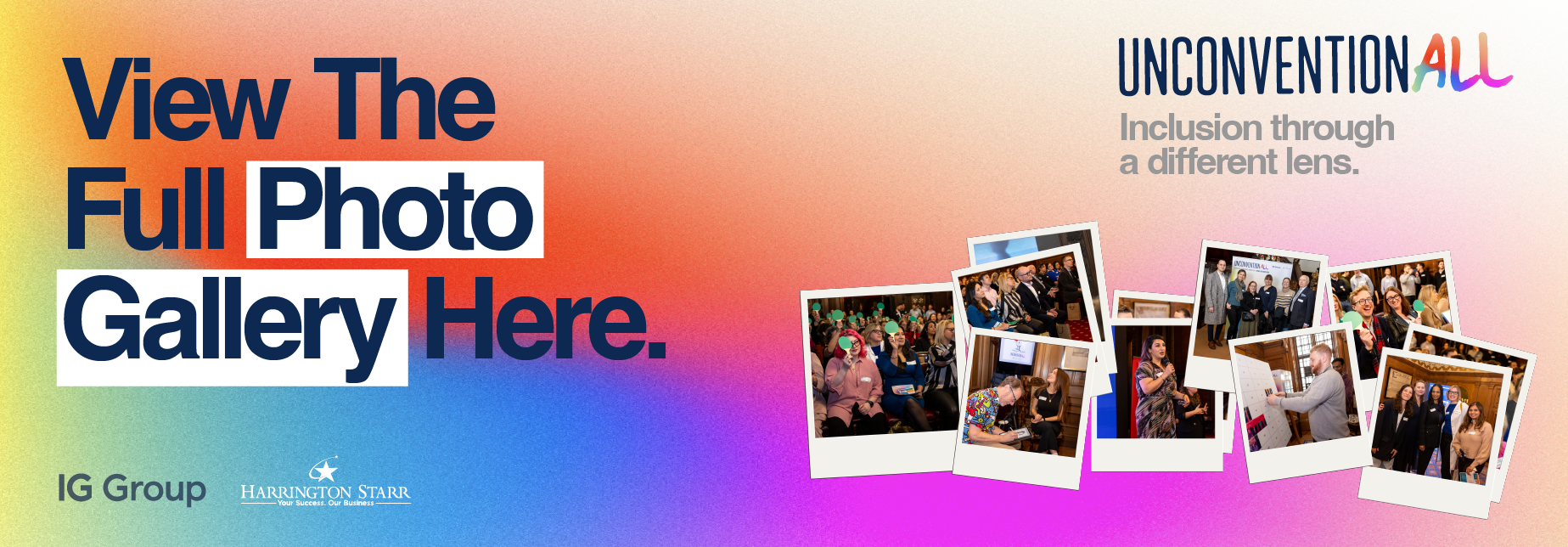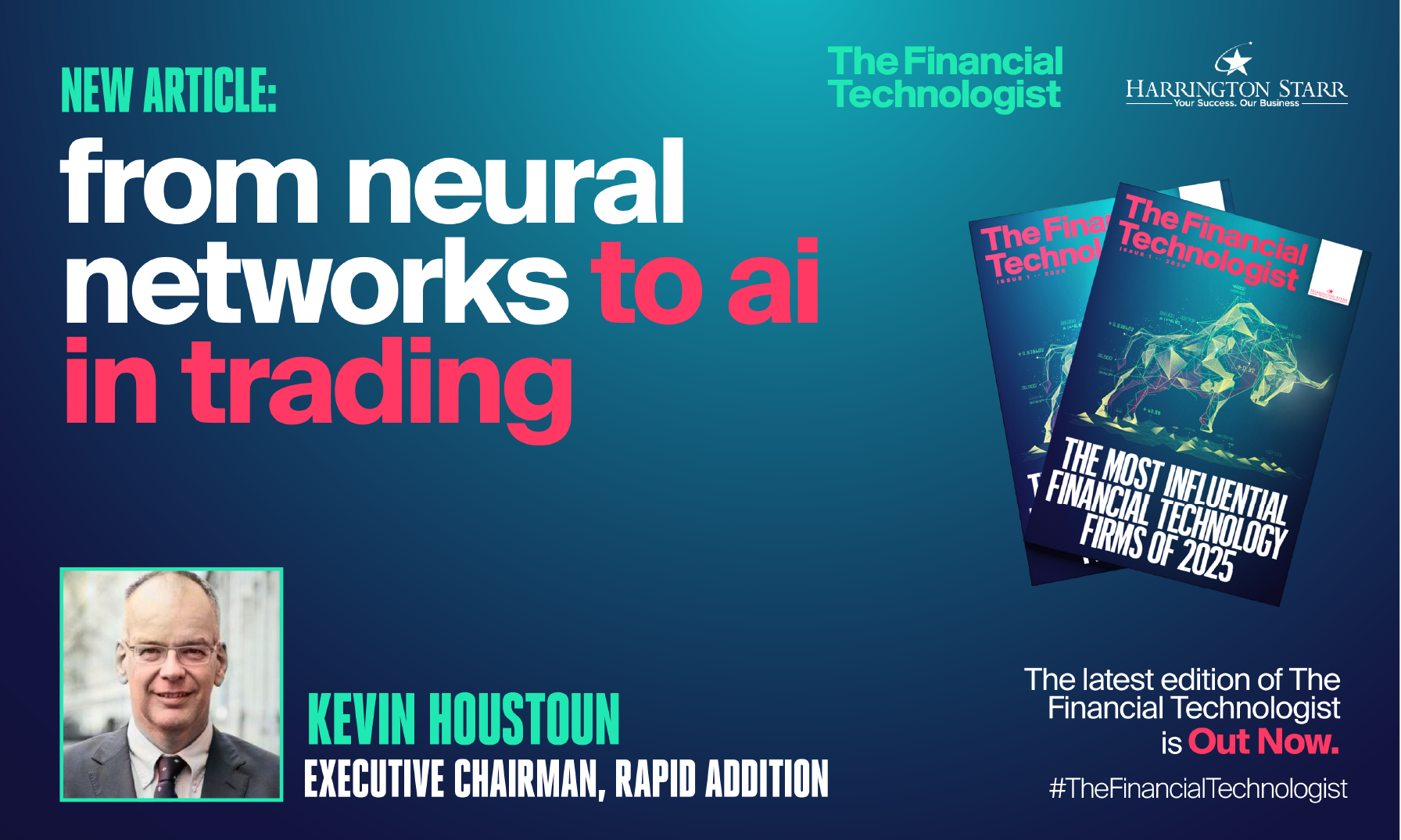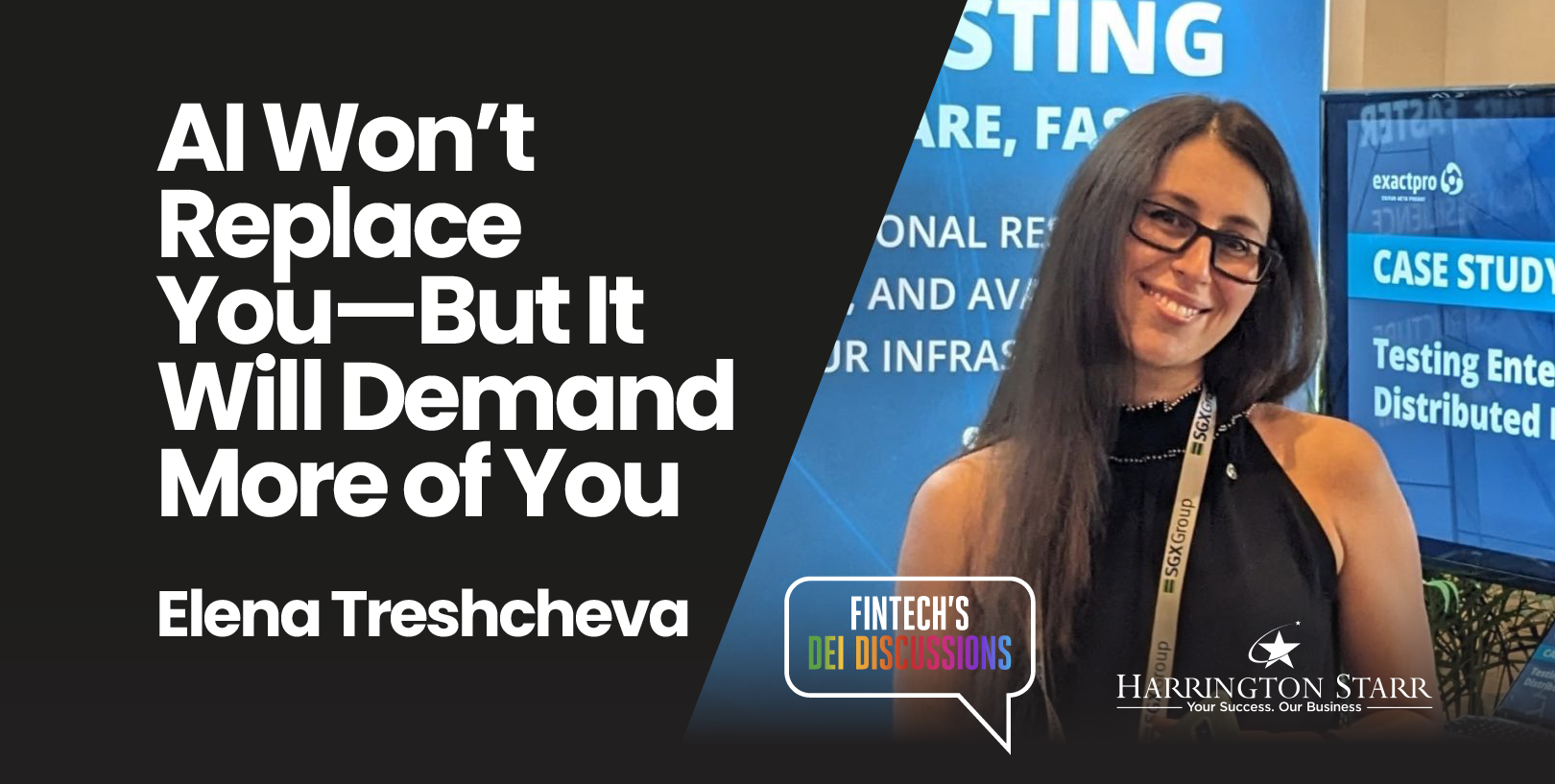
After many months of careful preparations, Harrington Starr and IG Group proudly hosted a sell-out International Women’s Day event at Vinters’ Hall, London on 5th March.
The simple message: be #UnconventionALL
What does it mean to be #UnconventionALL when it comes to DEI? And why do we talk about inclusion through a different lens? This event was all about intersectionality within DEI and how we can all play a unique part in the movement towards fully inclusive workplaces. We wanted to look at inclusion through multiple lenses, highlighting that it's lazy to reduce gender diversity and the wider DEI discussion to simply 'man versus woman.'
The packed out hall was buzzing with energy as our speakers took to the stage, including Payal Jain, Managing Director at JCURV, Meri Williams, CTO of Pleo, Nadia Edwards-Dashti, CCO at Harrington Starr and Daniele Fiandaca, founder of Token Man Consulting.
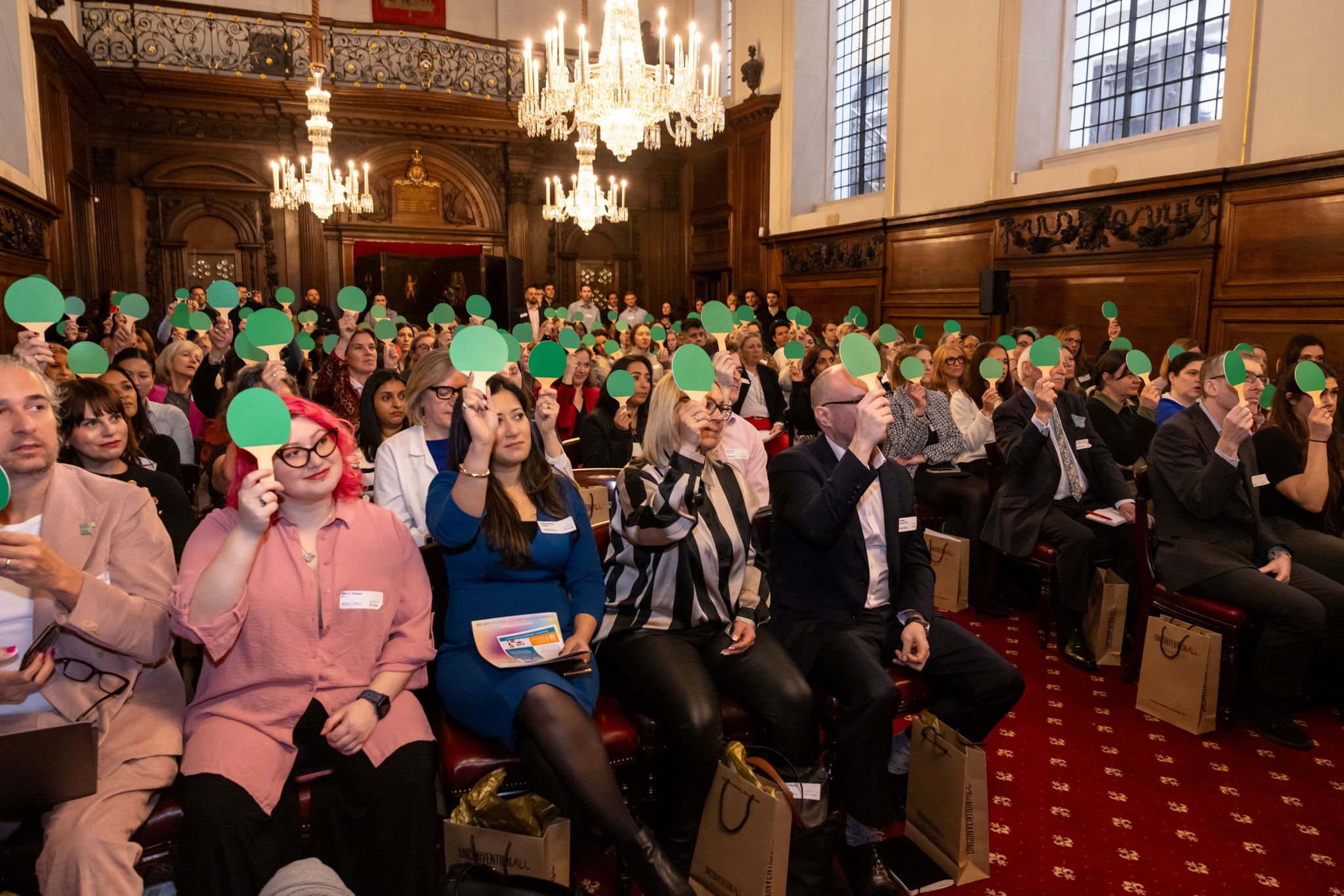
Payal’s Obstacles in Tech
Payal was joined by Fern Ashby, User Experience Researcher at IG Group, who interviewed her about the obstacles she faced as a woman in tech. Payal recounted career-defining challenges, specifically recounting an experience earlier in her career of being underconfident at an event where she was the only woman. She highlighted that women often feel like the ‘token woman’ in such situations, and feel a sense of imposter syndrome due to lack of representation in male-dominated spaces.
"Don’t hold back.” This was a text from a male colleague that Payal received at a similar event when she knew he could sense her anxiety from across the room. She shared how reassuring it was to read, and that it was enough to empower confidence in herself in that moment.
The lesson here is you never know who might benefit from a little bit of encouragement. Who could you empower in realising their full potential?
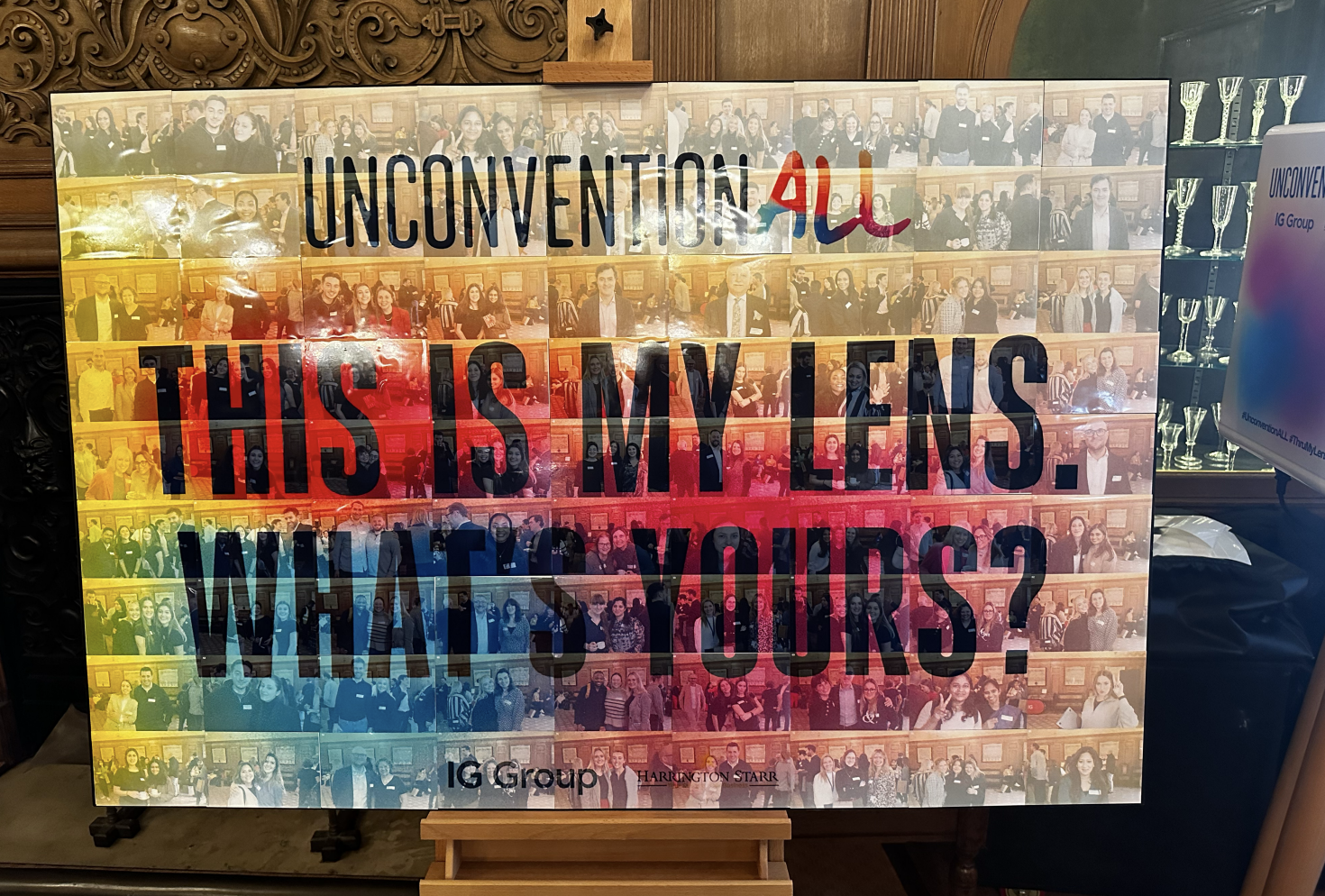
The Best Person for the Job
Nadia addressed the room to explore the question, ‘Who is the best person for the job?’ – one of the hiring pain points Nadia spoke to was the fact that when hiring, many businesses say they want greater representation, but they simply can’t find the best person for the job.
Diving deeper, Nadia asked the question: who is YOUR best person for a job? Better representation in the workplace starts with individuals at all levels seeing the role they have to play in being allies. Without people doing this, the entrenched way of doing business prevails.
Such questions were intended to suggest a rethink of how we approach hiring. By asking the traditional question, 'who is the best person for the job?', we're using a loaded question which is based on old assumptions for what a business needs, and it assumes a collective view on a single candidate.
By looking at a candidate as an individual, Nadia was revealing a more holistic view of candidates. Skills and experience are just one way of judging a candidate, but they can be assessed by cultural fit, and what they might bring to a team through their personality and their way of thinking. Viewing best fit by a job in terms of skills and experience limits businesses to more narrow forms of hiring, when a more holistic approach allows for greater diversity of thought.
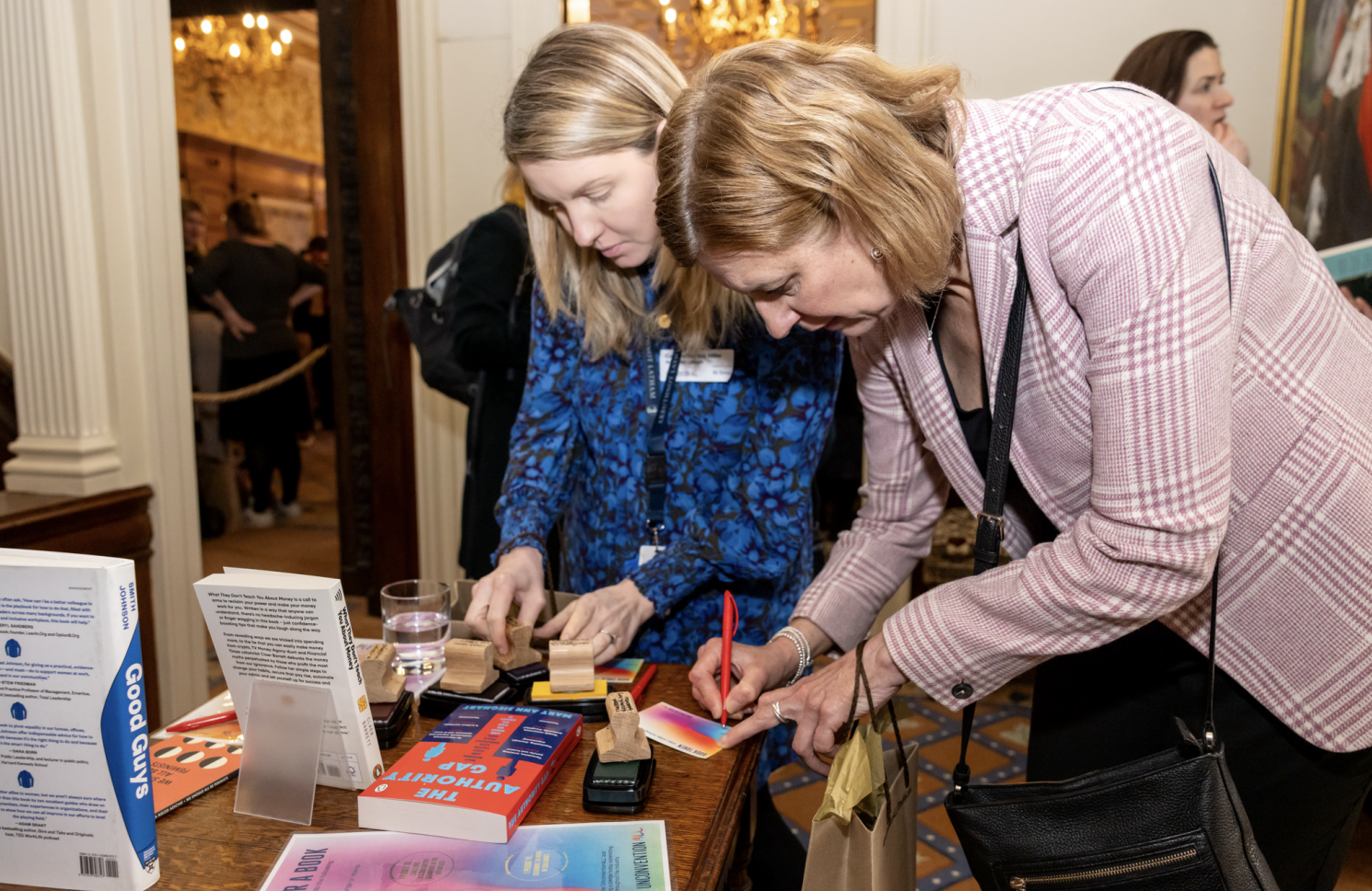
Expect, Respect and Express
Meri Williams was next up and spoke on the subject of gender equality in coding, offering her perspective as a queer woman in tech. She admitted that when previously changing jobs, she never felt she was interviewed in places that expected a candidate like her.
It’s one thing to be expected: many businesses lack sufficient representation of women and LGBTQ+ individuals and all of the life experiences they carry with them into a new job. Real change comes when the differences these groups face are viewed not as a bug but a feature, and something to be embraced when such candidates are considered for roles.
If a business never gets exposed to new perspectives, if they never expected to hire a genderfluid person, the issue of respect comes into play. How can a business show sufficient respect to a specific gender or community, if they never factored such people into their workforce?
Meri recounted the experience that workers at Monzo faced, where transgender engineers faced the indignity of being deadnamed and misgendered during customer service-related work. Monzo stepped up to the challenge and showed immense respect to their employees, vowing to ensure such behaviour never happened internally. This meant ensuring that their records of employees always carried the right name and gender identity-related information on file.
Meri’s last point focused on freedom of expression. It’s one thing to be expected to go for a role, another thing to be respected, but once you’ve made it into a role as a queer woman, for example, can you truly be yourself at work?
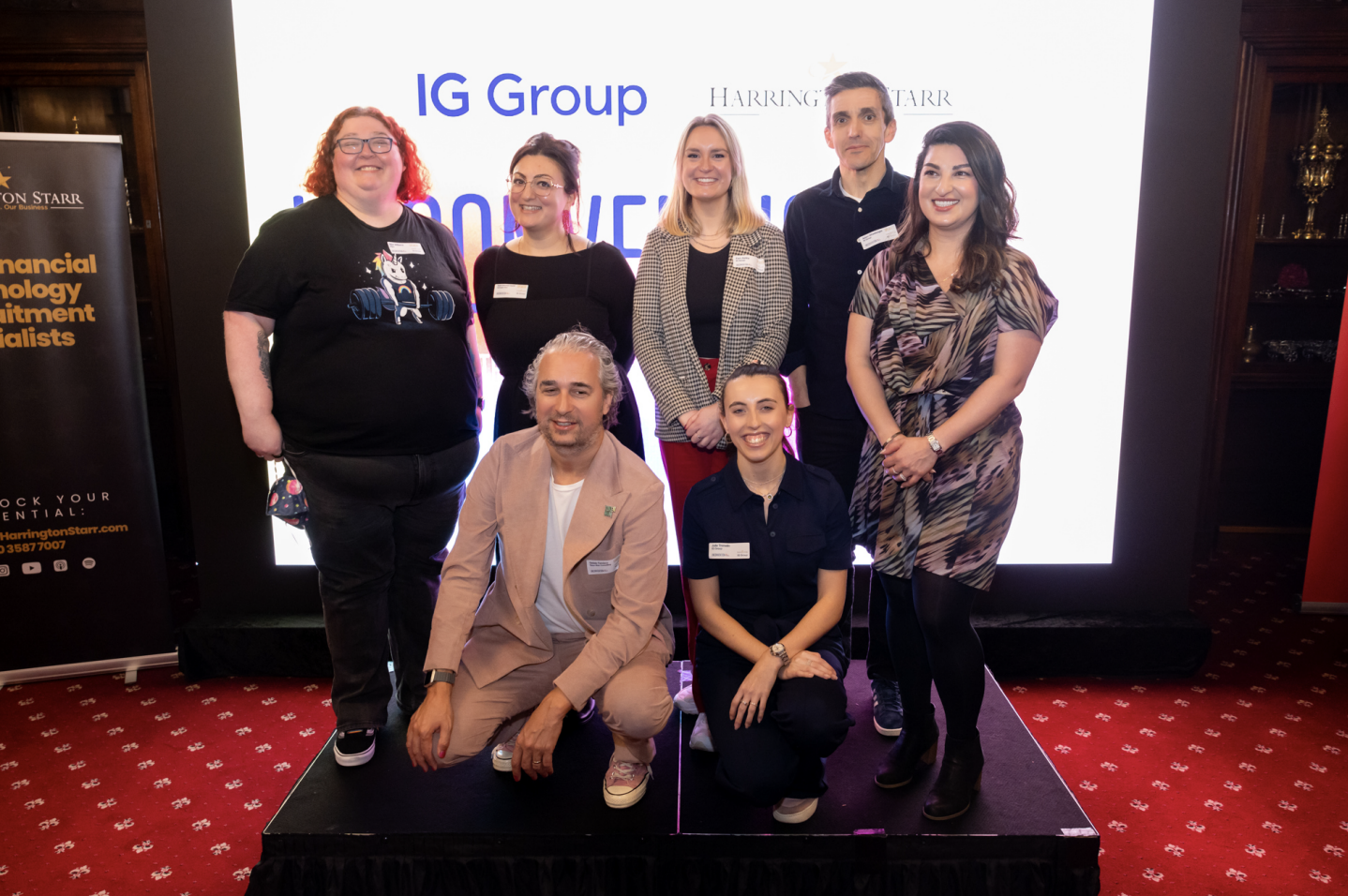
Daniele on Male Allies
Daniele, our final speaker, was the sole man to address the audience, and he did so by revealing a fact that many will already have figured out: workplaces, by nature, are very often a masculine environment. Despite this, a poll by Token Man Consulting revealed that 39% of men feel less valued by diversity invitatives.
Worryingly, the poll also found that 46% of male employees feel overlooked for promotions due to diversity targets. These concerns from male workers speak to a sense of insecurity when faced with the subject of Diversity, Equity & Inclusion (DEI). Daniele explained, however, that change is only accelerating and he quoted Alvin Toffler, who remarked in 1970:
“The illiterate of the 21st Century will not be those who cannot read and write, but those who cannot learn, unlearn and relearn.”
In this context, Daniele impressed the importance of male allies to recognise their own role in the obstacles women face in the workplace. It’s one thing to be part of a problem, but a whole other thing to recognise that and act against it.
Taking the Pledge
It was inspiring to see everyone engaging with the talks which were followed by an unforgettable networking experience.
Attendees were also encouraged to commit to a number of pledges to take with them, and we were pleased to see so many of you dropping by our book stall to pick up an inspirational read to take home.
International Women’s Day itself might be just for a day, but the issues women face in the financial technology industry (and beyond!) have persisted for a long time.
By shining a light on these issues and sparking new conversations about what it means to work in fintech today, we hope we’ve inspired you to embrace all perspectives.
Thank you to all who attended! We hope you felt energised to break through obstacles in the workplace and become #UnconventionALL in your very own way. We are loving all of your posts on social media, expressing your inspiration and gratitude for the day.
Action Speaks Louder Than Words
Take a look at some of the pledges shared and ask yourself which one you could commit to in the workplace:
- I pledge to challenge discriminatory behaviour in the workplace
- I pledge to celebrate the wins of colleagues
- I pledge to educate myself and others
- I pledge to give everyone a fair hearing
- I pledge to be a champion for colleagues
